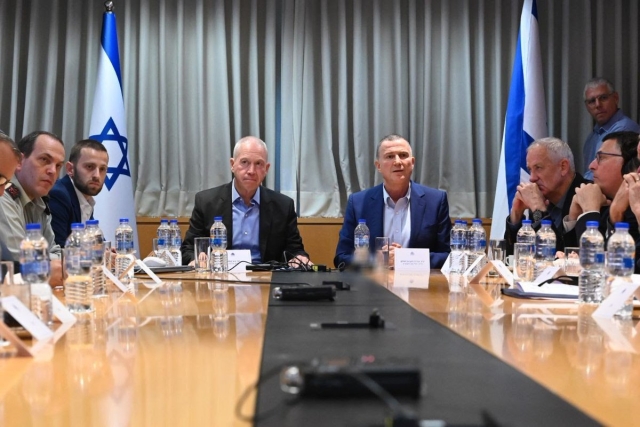On Monday, the Foreign Affairs and Defense Committee gathered to discuss the current state of the Israel Defense Forces amidst the ongoing judicial reform protests. Minister Gallant provided an update on the IDF's condition, stating that it is currently capable of carrying out its missions and is fit for war. However, he also acknowledged that the protests have caused some harm, which may have potential long-term effects. The internal cohesion of the IDF has been impacted, leading to concerns about the country's national strength and security.
Brigadier General and Research Major Amit Sa'ar highlighted the concerns regarding how Israel's enemies perceive the situation. He pointed out that adversaries see the protests as a sign of weakness in Israel and may view it as an opportunity to exploit the crisis.
MKs, Defense Comittee to meet with Defense Minister Gallant to discuss IDF readiness amid reservists' protests
— i24NEWS English (@i24NEWS_EN) July 31, 2023
'If the reserves are not as strong the whole war procedure is different. This is something that can't be ignored,' says @jregevi24news
#i24NEWSDesk pic.twitter.com/wdQCA4uKaX
The debate took a political turn when members of the coalition demanded that reservists, particularly pilots who declared they would not report to duty, be defined as refusers. However, former Chief of Staff and opposition member Gadi Eisenkot argued that it was not a refusal but rather a cessation of volunteering. Merav Michaeli, Chairman of the Labor Party, agreed with Eisenkot's perspective.
Amidst this discussion, the committee also addressed the security challenges posed by Hezbollah on the northern border. Defense Minister Gallant mentioned the gas agreement with Lebanon, under the previous government led by Yair Lapid, as a turning point in deterring Hezbollah. However, senior IDF officials present in the meeting dismissed this notion, asserting that deterrence efforts began much earlier, unrelated to the judicial reform or the Lebanon Gas deal.
The visit follows a phone call between U.S. Secretary of Defense Lloyd Austin and Gallant on July 25. Gallant assured Austin of the IDF’s readiness and capability to face various security threats, particularly amidst domestic unrest in Israel.https://t.co/x9sQSyiX6H
— FDD (@FDD) July 31, 2023
Merav Michaeli questioned Minister Gallant's analysis and asked if it was his personal stance or the system's view. The defense minister responded that it was based on the assessments of the defense system and intelligence. Michaeli then reminded Gallant that when the gas agreement was approved, all military officials supported it. She questioned the sudden shift in perspective.
In response to the discussion, a statement was released on behalf of Yair Lapid, the head of the opposition and former prime minister who signed the gas agreement with Lebanon. The statement praised the agreement as a historic achievement for Israeli foreign policy, strengthening the country's security, weakening Hezbollah, and ensuring a stable gas supply. Lapid's statement emphasized that the agreement was made following the recommendations of various security elements, including the IDF and the Mossad.
The debate within the Foreign Affairs and Defense Committee reflects the complex challenges Israel faces, both internally and externally, and highlights the need for careful consideration and consensus in addressing critical issues related to national security and foreign policy.


